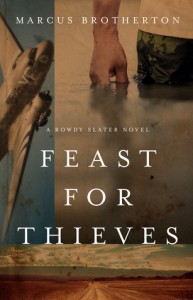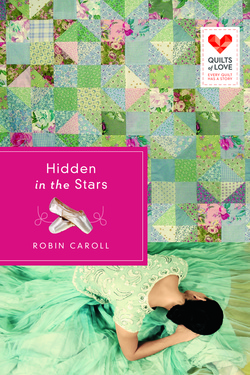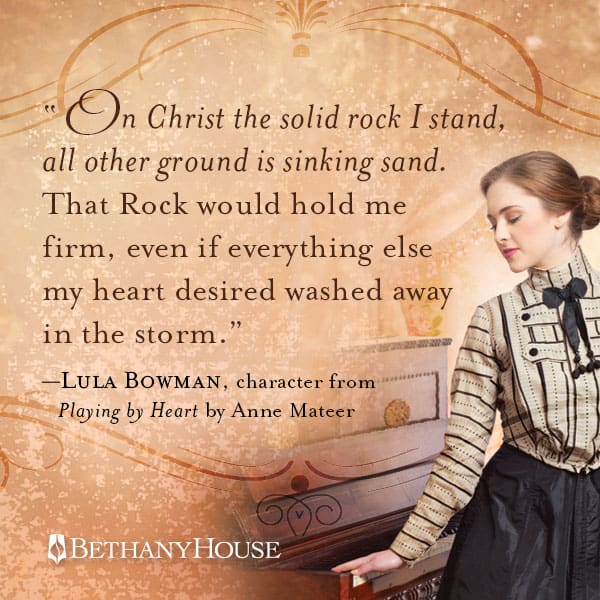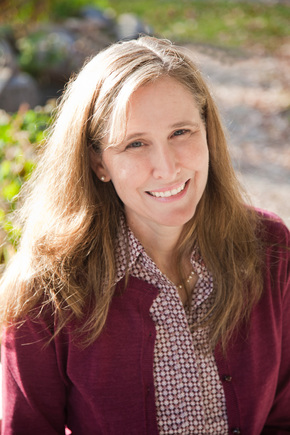Quilts tell stories of love and loss,
hope and faith, tradition and new beginnings. The Quilts of Love
series focuses on the women who quilted all of these things into
their family history. Featuring contemporary and historical romances
as well as women's fiction and the occasional light mystery, you will
be drawn into the endearing characters of this series and be touched
by their stories.
Sophia Montgomery has made the U.S. Olympic gymnast team. She has come to spend time with her mother before reporting to the training center. Expecting an overnight delivery of papers from Sophia's coach, her mother opens the door. Violence pursues as two men barge in to demand what they are looking for from her mother. As added pressure, they attack Sophia. In an instant, her future is completely altered.
Unable to speak, a lip reader is called to the hospital to take Sophia's eyewitness statement of what happened to enable the police to piece clues together to apprehend the attackers. Sophia's grandmother is located to come to the hospital. Sophia tells the detectives that she doesn't recognize her. She doesn't know her.
As the story progresses leads are slim until Sophia's mother's memory quilt is explored. Author Robin Caroll has displayed the crime scene step-by-step as the detectives, aided by Sophia's lip reader, Charlie, move forward in a case with hidden clues to be exposed. Charlie was my favorite character with her compassion and interest in helping Sophia.
***Thank you to Litfuse Publicity Group for inviting me to be part of the blog tour for Robin Caroll's novel, Hidden in the Stars, and to Abingdon Press for sending me this Quilts of Love story for review. This review was written in my own words. No other compensation was received.***
As a younger girl, we lived in a very rural area. During the winter
months, my mother and I would quilt together. It was a very special time
for me, with my mom. When I heard about the Quilts of Love series, I
wanted to be a part of it and I wanted to write into the story the
special connection between mother and daughter.
I’m drawn to both gymnastics and ballet, and I wondered what would
happen if something caused you not only to lose the person you loved and
depended on the most, but also caused you to lose the dream you’d
worked for all your life.
I actually think my favorite is the heroine’s mother, Nina. She was a
prima ballerina, yet sacrificed everything for her family, especially
her daughter.
I hope readers will not only be entertained by this murder mystery,
threaded with themes of family ties and sacrifice, but that they will
also walk away from the book reminded that what others might mean for
evil in our lives, God can use for good.
The opening scene. That’s always the most fun for me . . . it drops
me right into the story and I get to figure out what my characters can
do after that!
Not so much rituals . . . but I don’t turn down Starbuck’s white chocolate mochas or Tom’s Hot Fries when I’m writing. Ever.
I have so many. I guess my favorite would be: "The dead, hateful eyes stared silently back at him."
I fell in love with these characters when I was writing the story, and I hope everyone enjoys getting to know them as well!
1
Beep. Beep. Beep.
What on earth was beeping so loudly? And annoyingly.
Sophia Montgomery blinked. Brightness burst through the slit
she’d managed to force open. She squeezed her eyes shut tight again
and sucked in air.
A strange stench curled her nostrils. It was almost rancid . . .
disinfectant mingled with sweat. That made no sense . . .
There had been two men, banging at the door. Barging in. Knives.
Big knives. Grabbing her by the hair and throwing her to the floor.
She hit her head against the leg of the chair. The coppery-metallic taste
of blood filled her mouth.
Sophia tried again to open her eyes. W-what? she mouthed, but
not a sound escaped. Burning shards closed around her throat as
she tried to swallow against a gravelly resistance.
Dear God, what’s
happening?
“Shh. Don’t try to talk,” a woman’s crackly voice soothed. “The
doctor will be here in a moment.”
Doctor? Sophia struggled to sit, but every muscle in her body
resisted, a sure sign she’d overdone at practice. Gentle hands eased
her still. A cool, damp cloth stroked her forehead.
“You thought you could get away with it?” one of the men had
yelled. His breath hissed against her face. Her neck.
She blinked again, this time prepared for the light. Or so she
thought. The brilliance burned. She moaned and snapped her eyes
closed.
“I’m sorry. Let me turn down the light,” the woman whispered
in her guttural toned voice.
Click. The sound echoed in Sophia’s head.
“There. This should be better.”
Sophia tried squinting a third time. While still brighter than
the darkness she’d been comfortable in, the light wasn’t so searing.
She barely made out the figure of a woman at her side, hunching
over her bed.
Wait a minute. Something wasn’t right. Where was she?
God?
“Well, good morning,” a man’s cheerful voice boomed.
Still squinting, Sophia shifted her gaze to the voice’s origin. The
fuzzy silhouette moved close to her.
“I’m Dr. Rhoads. Nod if you can hear me okay.”
A doctor? What was going on? She nodded and forced her eyes
open wider as pain ricocheted around her shoulders.
“Good.” Cold hands touched her forehead. She must have
reacted in some way because he chuckled softly and said, “Sorry.
Everyone says I have the coldest hands in Arkansas.”
Arkansas . . . but she lived in Texas. Plano. Close to the gym
where she trained.
Training!
Lord, what is going on?
The doctor shined a light in her eyes, searing them with its
intensity. She snapped them closed and turned her head, moving
out of his hold.
“I know it’s uncomfortable, but I had to check your pupils.”
Sophia forced her eyes open, willing them to focus on the man.
She could now see his white coat. Dark hair. Big smile—too big.
She opened her mouth to ask what was going on, but razors sliced
inside her throat.
“Don’t try to talk. You sustained serious damage to your throat,
including your vocal chords. We’re treating the injury, and you’ve
responded well, but you won’t be able to talk until the swelling of
your larynx subsides considerably.”
She closed her eyes as scattered images raced through her mind.
Pinned to the floor. The bulky man straddling her, putting all his
weight on her abdomen. His hands around her neck. Squeezing. Not
enough oxygen! Can’t breathe! Tighter. Tighter.
She sucked in air and reached for her neck, but her arms wouldn’t
lift her hands. Red, hot arrows of pain shot from her shoulders
down to her wrists.
Oh, God! She opened her eyes wide and looked
into her lap. Everything was in clear focus.
Sophia reclined in a hospital bed, the standard white sheet
pulled up to her chest. Her arms sat on top of the sheet. Her hands
were wrapped in gauze, big as footballs. Her right arm was in a cast
up above her elbow.
The skinny man holding a knife to Mamochka’s
throat. Yelling.
Demanding. The bulky one stepping on her right hand with his heavy,
big boot. More pressure. The pain! Stop! Harder. Bones snapped.
Please, please stop. The sobbing. Hers. Mamochka’s.
The pounding of her heart echoed in her head, shoving aside
the beeping sound getting faster and louder.
No, Lord. Please!
“Calm down, Ms. Montgomery. Your blood pressure is too
high. I don’t want to have to give you anything right now,” the doctor
said.
“You must relax now,
MIlaya Moyna,” the older lady whispered
as she patted Sophia’s head with the cool cloth again. There was
something so familiar about her . . . but . . . not.
“There you go,” Dr. Rhoads said. “Breathe slowly. In through
your nose and out through your mouth.”
Even breathing hurt, but Sophia controlled her panic. Years of
practicing self-control had made her a master despite her fears. Her
hands. How would she compete?
“Well done, Ms. Montgomery. I’ll go over your injuries with
you in detail, if you’re ready.” Dr. Rhoads stared at her, a single
brow raised.
She nodded, sending slicing pain shooting down her spine.
Sophia set her jaw and refused to wince.
“Okay.” The doctor reviewed her chart. “You have sustained a
laryngeal fracture with some mucosal tearing. We’re keeping you
on voice rest to minimize edema, hematoma formation, and subcutaneous
emphysema. We will continue the use of humidified air
to reduce crust formation and transient ciliary dysfunction. We’ll
also continue treatment by use of systemic corticosteroids to retard
inflammation, swelling, and fibrosis and to help prevent granulation
tissue formation.”
Tears threatened, but Sophia blinked them back and concentrated
on what the doctor said.
“Since you sustained compound fractures of the larynx, we have
you on systemic antibiotics to reduce the high risk of local infection
and perichondritis, which may delay healing and promote airway
stenosis. You’re also taking anti-reflux medications to reduce granulation
tissue formation and tracheal stenosis.” Dr. Rhoads smiled.
“Of course, this means you can’t eat or drink anything for a few
more days. Understand so far?”
Sophia swallowed instinctively, and regretted it immediately.
She didn’t understand everything the good doctor said, but she got
enough to know her throat was damaged enough that she couldn’t
talk or eat. Still, it didn’t sound permanent, so it was something.
He leaned forward, letting his weight add strength to his hands
closed around her throat. No! She couldn’t see past his face anymore.
His scowl. His eyes. They weren’t filled with rage, but just . . . empty.
“Sophia? Do you understand?” Dr. Rhoads asked.
She ignored the scattered images and gave a little nod. Her head
began to throb in cadence with her heartbeat.
“Good. Moving on . . . you’ve sustained serious, traumatic crush
injuries to both of your hands. In surgery, we were able to remove
all the tissue we couldn’t salvage. We were able to repair most of
the damaged blood vessels to reestablish circulation in your fingers.
All the broken bones were realigned and stabilized with temporary
pins called K-wires and screws. We repaired the damaged tendons
and ligaments. Post-op, you’re doing great. You should be able to
begin physical therapy as soon as the bandages are off.” Again, the
doctor smiled.
“Tell us.” He stepped down on her hand. Pain. Bones cracked.
Sophia cried out. “Stop!” Mamochka
screamed. “Tell us.” He put all
his weight on his foot. Bounced. Sophia screamed and tried to roll
over to protect her hand. He slung her backward and plopped onto her
hips, straddling her.
The image disappeared. She stared at her hands lying gauzed
and lifeless in her lap. Everything within her wanted to scream . . .
cry . . . hit something. Why was this doctor smiling? Didn’t he get
it? Her hands were her life! If she couldn’t sustain her weight on her
hands, her career was over.
Dear Lord, no. Anything but this.
“
О’кей MIlaya Moyna,” the woman whispered.
No, it wasn’t okay. And who was this woman to be calling
Sophia
my sweet? Especially in Russian.
Despite the excruciating pain the movement caused, she twisted
her head to meet the woman’s stare. Sophia was certain she’d never
met the woman before, but there was something . . . her eyes. They
were just like
Mamochka’s.
Could it be? The woman looked to be about the right age.
“Now,” Dr. Rhoads interrupted her thoughts, “about your pelvis
girdle fracture.”
Her pelvis was busted, too?
He straddled her. Mamochka
yelled
out. Sophia kicked, trying to buck him off of her. She had to help her
mother! He pinned her with his weight. Pain shot through her midsection
and hips as if she’d missed a dismount and fell off the balance
beam. “You aren’t going anywhere. Ever,” he whispered as he leaned
over her and wrapped his hands around her neck.
Unaware of her agony, the doctor continued. “There’s only one
breaking point along the pelvic ring, with limited disruption to the
pelvic bone and no internal or external bleeding. This means your
pelvis is still secure despite the injury, and we can expect a prognosis
of a quick, successful and complete recovery.”
Great. So her pelvis would have a complete recovery. She could
live without being able to talk. But would her hands totally recover?
If so, when?
She closed her eyes, refusing the tears access. All her life, coaches
and instructors had drilled into her head crying was not an option.
Tears were to be saved for her pillow.
So many before her had sustained injuries and left the circuit,
only to never return. Was it her fate?
Abba!
“The rest of your injuries are minor cuts and bruises that
should heal without incident. Several areas required stitches. You
have a laceration at the back of your head where you were hit from
behind—”
“Doctor,” a man’s deep voice cut off Dr. Rhoads.
Even though things were a little fuzzy to Sophia right now, even
she didn’t miss the frown etched into the doctor’s brow.
Dr. Rhoads smiled at her. “Ms. Montgomery, you were very
lucky. With the extent of your injuries, you could have been in a
coma.”
The other man cleared his throat.
The doctor frowned as he looked at her. “Now, if you feel up
to it, there’s a detective here who would like to ask you a few questions.
Only if you feel up to it. Do you?”
A detective? She swallowed, then regretted it, but still nodded.
The doctor nodded and stepped back. “Keep it brief, please,
Detective. She needs her rest.” Dr. Rhoads patted the bed beside
her feet. “I’ll be back later to check on you.”
“Ms. Montgomery, I’m Detective Frazier.” There was the deep
voice again, authoritative, but with a hint of danger.
Sophia stared at him as he stepped into her line of vision, and
took a full inventory of her first impression of him. Hard to gauge
his height since she was in the bed, but he stood taller than Dr.
Rhoads. His black hair held a wave, even though it was short. He
had broad shoulders and muscular arms apparent under the short-sleeve,
button-down Oxford shirt he wore. He was probably no
more than twenty-eight or so, at least in her estimation based upon
the weariness in his face covered in stubble. His chin was cut and
his cheekbones well defined. His nose had been broken at least
once. But it was his eyes drawing her attention. They were so dark
they appeared like a bar of dark chocolate.
Then again, maybe it was just her distorted vision.
~*~
Detective Julian Frazier had been silently assessing Sophia
Montgomery from the corner of her hospital room since she’d
been brought here following her surgery. Over the last two and
a half hours, he’d gotten over the shock of her appearance. He’d
been a cop for enough years that the damage a victim sustained
shouldn’t have affected him, but he’d seen the pictures of Sophia
Montgomery before the assault and to see her now . . .
He pushed off the wall he’d been leaning against and approached
her bedside. “I have a few questions. Do you know who you are?”
She nodded, and unless he was imagining things, she actually
rolled her eyes.
Attitude. Good. She’d need it. According to the doctors, she
had a long, painful road to recovery in front of her. “Do you know
where you are?”
She stared at him from her swollen, cut, and bruised face. There
wasn’t one square inch of her face and neck without some visible
sign of her assault. Even her lips were cut and cracked as she tried
to lick them. With her head resting on the pillow, she gave a nod.
“Do you know why you’re here?” he asked, flexing and unflexing
his fingers against the coolness of the hospital room. It might
be June outside, but the nurses had set the thermostat low enough
it felt like winter in the critical care ward.
She blinked.
Then again.
He met her stare with his own. Something about how small
she was and the damage inflicted on her, yet she’d survived, nearly
undid him. He’d overheard the nurses talking. They’d seen more
people struck by vehicles with less damage than Sophia had endured.
Whoever had attacked Sophia Montgomery and her mother had
been especially vicious. Julian couldn’t stand it. Whoever was
responsible would face justice.
“Do you know why you’re here?” he asked her again.
She tilted her head to the side. With her injuries, it had to hurt.
“You’re unsure?”
She nodded.
Great. If she didn’t remember anything, it would make his job
so much more difficult. As it was, he was at a loss how he’d proceed
at this point. With her extensive injuries, she couldn’t speak and
couldn’t write, so how he was supposed to get her statement was
more than a little confusing. He’d definitely have to think outside
the box on this one.
She mouthed something. He couldn’t tell what. She mouthed it
again. It was one syllable, but he couldn’t make it out. She mouthed
it a third time.
“I’m sorry, but I don’t understand.” He snapped his fingers. “Let
me get someone to help, okay?”
She nodded, but not before she shot him a look of pure
frustration.
He could relate. Ever since he’d been called to the crime scene at
almost eleven last night, frustration had been his constant companion.
Frustrated this had happened. Frustrated no one had gotten
there in time. Frustrated there were no immediate suspects.
Julian turned and stepped out of the hospital room, grabbing
his cell phone from his hip. He quickly called his partner.
“She awake?” Brody Alexander asked without greeting. His
partner was not one to waste time or breath with small talk when
there was work to be done.
“Yep. Listen, we need to get Charlie up here ASAP to read her
lips, so I can take her statement.” Julian stared over his shoulder
at Sophia’s small and broken form lying so helplessly in the hospital
bed. “And send some uniforms. I want someone posted by her
room twenty-four-seven until we know what’s going on.”
“Got it.” Brody hung up, business concluded. He might have an
abrupt personality that had earned his reputation as an unappealing
partner, but he suited Julian. After what happened with Eli, he
wanted someone like Brody Alexander: all business.
He needed someone like Brody.
Julian put his cell back in its belt clip and strode back into the
hospital room and observed. It had taken the police some time to
locate Alena Borin as Sophia’s next of kin, only finding the connection
through Sophia’s mother’s maiden name. The older woman
fussed over Sophia, but Sophia didn’t look like she recognized her
grandmother. Maybe she had suffered some sort of brain injury in
the attack. It would make his job much more difficult.
But not impossible. Because Julian refused to let whoever was
behind this go unpunished. Someone would pay for this violence.
He owed it to Sophia and her mother. The image of Sophia at the
crime scene was one he would never forget. It would probably haunt
him forever.
He returned to Sophia’s bedside. Her eyes were guarded as she
watched Alena Borin’s every move: straightening the covers, gently
bathing Sophia’s forehead with the damp cloth. Sophia shifted her
focus to collide with his gaze.
The uncertainty in her stare tugged at something buried deep
within him. Something he didn’t want to pull out and inspect. He
cleared his throat until Ms. Borin gave him her attention.
“I’ve called in a lip reader to take Ms. Montgomery’s statement,”
he said to her privately, in a low enough voice Sophia couldn’t hear
him. “This will take some time, and I’m sorry, but you can’t be present.
Why don’t you go have some lunch?”
The older lady scowled at him, shaking her head.
“Ma’am, you don’t have a choice. This is official police business.”
She glanced down at Sophia, then back to him. “I will not leave
her alone.”
“She won’t be alone. I’ll be here the entire time, and there will
be officers outside her door within the hour.”
A long moment passed. She didn’t say anything, nor did she
move.
“Ma’am . . .”
Ms. Borin snatched up her purse. She smiled at Sophia. “I will
be back in less than an hour,
MIlaya Moyna.” After patting the foot
of the bed and throwing Julian another glare, she marched out of
the hospital room.
Julian pulled the chair closer to the bed and sat. Sophia stared
at him from behind her swollen face. He could read the wariness in
her eyes as if it were a blazing neon sign.
“Do you know who that woman was?” He made a deliberate
effort to speak just above a whisper level. The nurses had mentioned
she’d probably have a horrible headache when she woke.
She shook her head—no, tilted it.
“You don’t recognize her?”
She tilted her head again.
“You aren’t sure who she is?”
A nod.
Julian stopped. Maybe he should wait for the lip reader, so he
didn’t misunderstand. She wasn’t sure if she recognized and knew
who Alena Borin was.
Sophia made a sound, but the pain it caused her marched across
her face. She mouthed a single word, and this time, Julian understood
exactly. “Who is she?” he asked.
She nodded.
He sat up straighter and looked her dead in the eye. “She’s Alena
Borin, your grandmother.”
Quilts of Love | HIDDEN IN THE STARS – $200 Giveaway & “Fall into Fall” Facebook Party!
September's QOL release is a wonderful combination of mystery, romance, and family love bound together by a quilt and the story it tells.






 a beautiful excerpt from author Joanne Bischof ~*
a beautiful excerpt from author Joanne Bischof ~*


 Love's Reckoning, Book 1 ~ The Ballantyne Legacy ~ Review:
Love's Reckoning, Book 1 ~ The Ballantyne Legacy ~ Review: Love's Awakening, Book 2 ~ The Ballantyne Legacy ~ Review:
Love's Awakening, Book 2 ~ The Ballantyne Legacy ~ Review:



